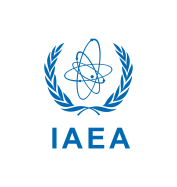Course
Stable Isotope Methods in Nutrition Research
The course will provide advanced understanding of the principles and concepts of different stable isotope techniques in nutrition research.

Background
In vivo assessment of nutrient absorption, status and metabolism can benefit a lot from the use of stable isotope methods. These methods can help to better understand biological processes, provide quantitative data on fluxes of nutrients through different compartments in the body, and help to determine nutrient status which links to health and diseases. This course will provide a solid scientific background on the application of stable isotopes in nutrition research. Topics will include Deuterium-based methods like body composition, energy expenditure and breast milk intake (dose to mother technique), as well as cover vitamin/mineral bioavailability and protein digestibility.
Target group
The course welcomes PhD candidates, post-docs and academic staff as well as scientists from research centres and industry working in the area of human and animal nutrition, food sciences and/or biomedical sciences. Basic scientific knowledge on concepts, methods and study designs in quantitative research is assumed, as well as general understanding of nutrition and nutritional physiology.
Aim
The course will provide advanced understanding of the principles and concepts of different stable isotope techniques in nutrition research, and participants will advance their skills in the application of these techniques. There will be time to consult faculty with questions arising from own research and experience. By the end of the course, participants will be able to:
- explain the general concepts and underlying assumptions of stable isotope techniques in nutrition research;
- explain the principles of various laboratory techniques to quantify isotope enrichments;
- describe the application of stable isotopes in the assessment of amongst others body composition, energy expenditure, breast milk intake, vitamin/mineral bioavailability and protein digestibility;
- apply the theory of one or two of the techniques discussed in the course to plan its use in the own research setting.
Course design
The course consists of lectures, tutorials, computer practical, excursion, and consultation with faculty.
Programme topics
- Basic concepts and definitions of the use of stable isotopes in nutrition research
- Mass spectrometry methods to measure stable isotope tracers
- Intrinsic and extrinsic labelling of experimental foods and nutrients
- Isotope tracer methods for measuring a.o. nutrient status, body composition, energy expenditure and bioavailability of vitamins and minerals
- Use of tracers in protein metabolism: digestibility and bioavailability
- Considerations for isotope-based study designs and proposals
- Some practical demonstration of dose preparation and administration, as well as sample collection and data analyses
Organisation
Course coordinators
- Dr ir Alida Melse-Boonstra, Division of Human Nutrition and Health, Wageningen University and Research, the Netherlands
- Dr Marco Mensink, Division of Human Nutrition and Health, Wageningen University and Research, the Netherlands
Prof dr Diego Moretti, Swiss Distance University of Applied Sciences (FFHS) / University of Applied Sciences of South Switzerland (SUPSI), Switzerland
Other faculty
- Dr Cornelia Loechl, Head, Nutritional and Health- related Environmental Studies Section at IAEA, Austria
- Dr Nikkie van der Wielen, Division of Human Nutrition / Animal Nutrition Group, Wageningen University and Research, the Netherlands
- Dr. Michiel Balvers, Division of Human Nutrition and Health, Wageningen University & Research, the Netherlands
Date & duration
The course will be held from 27 - 31 October. The course will start on Monday at 10.00h and will finish on Friday at 13.00h, with Friday morning 31 October for consultation.
Language
The course language will be English.
Study load
The study load of this course is 1.4 ECTS credits.
Contact information
Organisational matters
Cornelia van Bree-Evers, VLAG Graduate School
Course contents:
Dr Marco Mensink, Wageningen University & Research
Location & accommodation
The course venue is one of the Wageningen University buildings on Wageningen Campus, Wageningen, the Netherlands.
The town of Wageningen is 5 km from Ede-Wageningen railway station, with transport options being taxi or bus. Ede-Wageningen railway station is about one and a half hours from Amsterdam Schiphol Airport. For train schedules visit: www.ns.nl.
Hotel accommodation is not included in the course fee. If you need accommodation in Wageningen, you can find several options below.
Hotels:
Wageningen International Congress Centre
Other accomodation
Registration & course fee
The number of participants is limited to 30, when we exceed the maximum number of participants, new registrations will be placed on the waiting list. Early bird registration deadline is 5 September 2025. The final registration date is 7 October 2025.
The course fee (which includes materials, coffee/tea during breaks, lunches and one dinner but does not cover accommodation) depends on the participant's affiliation:
| Affiliation | Early Bird Fee | Regular Fee |
| WUR PhD candidates* | € 275 | € 325 |
| All other PhD candidates, Postdocs / staff from VLAG | € 500 | € 550 |
| Other university staff / non-profit | € 725 | € 775 |
| Industry / for-profit | € 1600 | € 1650 |
* WUR PhD candidates affiliated with VLAG, EPS, WIMEK, WASS, WIAS, PE&RC
Applicants will be informed of acceptance of their registration if possible within two weeks after their registration, but at latest a day after the final registration date. They will then receive instructions for payment, a notice of acceptance and further course details.
Cancellation policy
After acceptance of your registration, the VLAG Cancellation Conditions for course participants will apply.